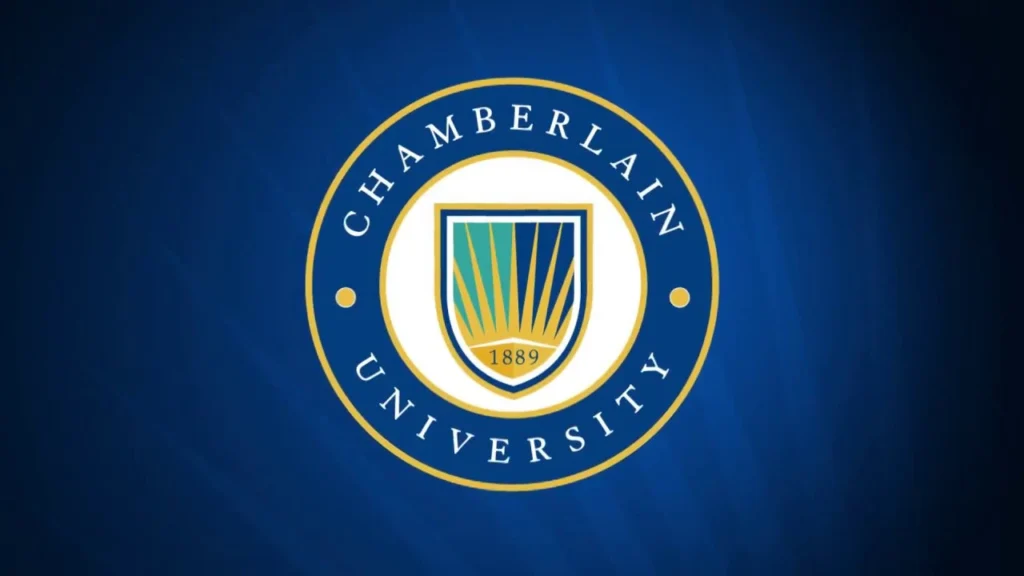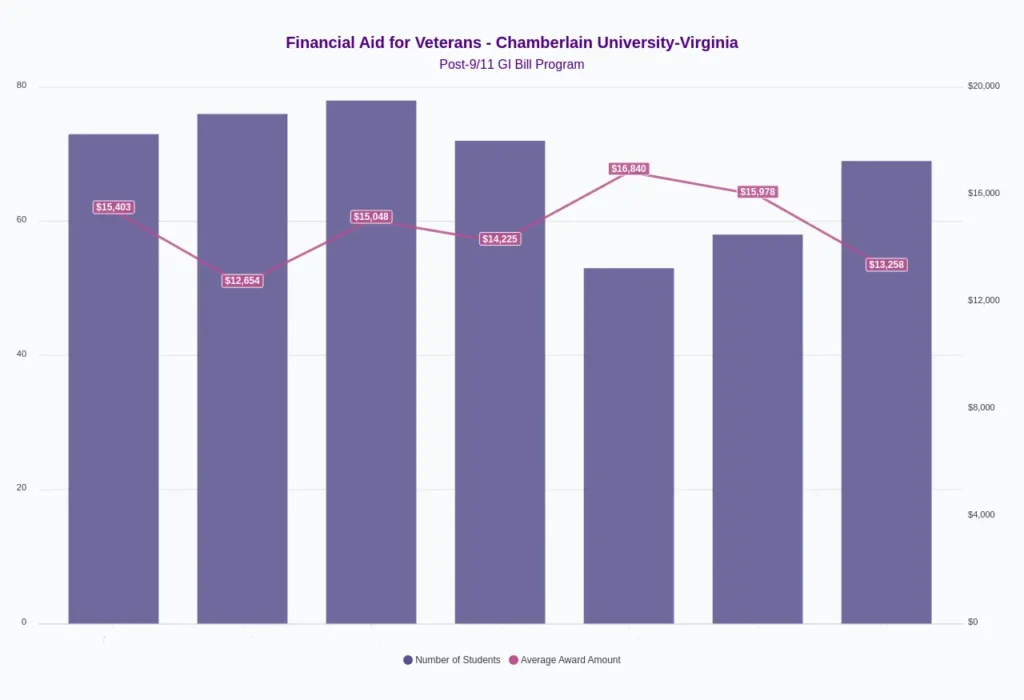If you’re considering a degree at Chamberlain University, figuring out your scholarship options really matters. Chamberlain University Scholarships offer financial support to qualifying students based on things like GPA, credit hours, and program requirements, helping you manage tuition costs.
Some programs, like the Called-to-Care Scholars Program, even offer multi-year tuition coverage for selected students. If you’re curious about how to qualify, what’s available, and how these scholarships might impact your education, this guide will walk you through the essentials.
What Are Chamberlain Scholarships?
Chamberlain scholarships are financial awards for students enrolled at Chamberlain University, mainly in nursing and health professions. These scholarships lower educational costs, recognize academic achievement, and encourage students to keep going.

Types of Chamberlain Scholarships
Chamberlain University offers several scholarships, each with its own requirements and perks. The Dean’s Scholar Program is a renewable award for high-performing students in the Bachelor of Science in Nursing (BSN) program.
The Chamberlain University Academic Scholarship supports students at both undergraduate and graduate levels. Some scholarships are merit-based and usually require you to keep up a minimum GPA or complete a certain number of credit hours—often at least 24.
Attention Students!
Application cycles typically run twice a year: spring (Jan-Mar) and fall (Aug-Oct). Eligibility can also depend on your enrollment status, program, or even your involvement in extracurricular or leadership activities.
Key Benefits
The biggest draw of Chamberlain scholarships is financial relief. Cutting down tuition or fees makes a nursing or health professions degree a lot more affordable.
Getting a scholarship can free up money for things like books, clinical supplies, or housing. Some scholarships are renewable, so you can get support over multiple terms if you keep meeting the requirements.
Winning a scholarship can also boost your academic record. It shows your commitment and achievements to future employers or grad programs, which might help you down the line.
Eligibility Criteria for Chamberlain Scholarships
To qualify for a Chamberlain scholarship, you’ll need to meet certain academic, GPA, and character standards. Each scholarship has its own rules, so read the requirements closely.
Academic Requirements
You must be enrolled at Chamberlain University, or at least in the process of applying. Some scholarships require you to have finished a minimum of 24 credit hours, which can include your current session.
Applicants need to be working toward a bachelor’s or graduate degree in a recognized field. Some scholarships, like the Certified Caregivers Scholarship, may ask for transcripts or proof of certification.
Other awards might want proof of employment in healthcare or evidence you graduated from a recognized high school. Meeting these prerequisites shows you’re serious about your academic journey at Chamberlain.
GPA Guidelines
Most Chamberlain scholarships set a minimum GPA. A common cutoff is 2.5 on a 4.0 scale, but some, like the Excellence in Education Grant, require a higher GPA—say, 2.85.
They check your GPA through your academic records, and you may need to meet both cumulative and recent grade requirements. Keeping your GPA up is key, since you might lose eligibility if your grades drop.
Here’s a quick table of sample requirements:
| Scholarship Type | Minimum GPA |
|---|---|
| General Chamberlain Scholarship | 2.5 |
| Excellence in Education Grant | 2.85 |
| Certified Caregivers Scholarship | 2.5 |
Character Expectations
Your character actually matters here. Chamberlain looks for qualities like integrity, professionalism, and a real commitment to nursing or healthcare.
Some scholarships might ask for recommendations, a personal statement, or proof of community involvement. Showing leadership, ethical behavior, and a dedication to service can really help your chances.
Be ready to provide references or other supporting materials if needed. Just be honest and clear about your strengths—don’t oversell, but don’t be shy, either.
Application Process and Deadlines
When you apply for Chamberlain Scholarships, you’ll need to follow some specific steps. Knowing which documents you need and when to send them can make all the difference. You can submit your application for Chamberlain University Scholarships below.
Required Documents
Start with your official admission application to Chamberlain University—only current or prospective students are eligible. You’ll usually need to submit transcripts that show your academic performance.
Letters of recommendation are common, typically from faculty or professional supervisors. Most scholarships ask for a personal statement or essay about your goals and why you’re choosing a nursing career.
Some scholarships require proof of financial need, like FAFSA documentation. And don’t forget the Chamberlain Scholarship Recipient Form—submit everything in the right format and on time.
Key Dates to Remember
Chamberlain University runs scholarship cycles in spring (January–March) and fall (August–October). Applications outside these windows usually don’t get considered.
For most scholarships, you’ll need to submit the recipient form and other materials by January 31 for the spring cycle. Deadlines can change, so check the Chamberlain website for the latest info.
Admissions offices often start accepting applications before the cycle begins. Set reminders and get your documents ready early. Miss a deadline, and you’re out—no matter how qualified you are.
Chamberlain University Financial Need and Aid Opportunities
Chamberlain University gives students a few ways to tackle the financial challenges of nursing school. Knowing how your financial need is figured out and how the financial aid office can help really smooths out the process.

Assessing Financial Need
They usually calculate financial need using your Free Application for Federal Student Aid (FAFSA). The form looks at your income, assets, and family size to come up with your Expected Family Contribution (EFC).
Once you get your EFC, Chamberlain checks the gap between total educational costs and your contribution to decide your need. This number affects your eligibility for scholarships, grants, or loans.
Chamberlain offers scholarships like a $1,500 award applied to tuition for those who qualify. You might also find grants, tuition discounts, or work-study opportunities if you show financial need. Check Chamberlain’s financial aid page or talk to an adviser to see what fits you best.
Role of the Financial Aid Office
The financial aid office guides you through the process from start to finish. They’ll help with forms, deadlines, and what paperwork you need.
If you’re not sure which aid program to choose, they’ll give you personalized advice. They also send updates about new scholarships or grants each session.
If your circumstances change or you need more funds, they can help with appeals. Staying in touch with the financial aid office is honestly the best way to make sure you don’t miss out on resources.
Funding Details and Coverage
Chamberlain University provides several scholarships and grants to make nursing school more affordable. Funding amounts and coverage vary, but most support goes toward tuition and related educational expenses.
Tuition and Fees Coverage
Most Chamberlain scholarships go straight to your tuition, lowering your overall cost. Many awards are fixed—like $1,500 per scholarship—so you owe less each semester.
For BSN students, grants like the Excellence in Education Grant offer $500 per session, up to $5,000 over your program. Funds cover tuition and mandatory fees, but you usually won’t get the money directly. Scholarship amounts can change with each funding cycle. Always check the details for each opportunity.
Note: Not all fees are covered, so talk with an advisor about your full financial plan.
Other Covered Costs
Most Chamberlain scholarships focus on tuition and don’t usually cover books, uniforms, lab supplies, or personal expenses. So, things like housing, transportation, and clinical supplies are still up to you, even with a scholarship.
You can combine scholarships with federal grants, outside scholarships, or need-based aid to cover non-tuition costs. Work-study programs or student loans might help fill in the gaps.
A few specialized grants or scholarships may offer stipends or help with specific costs beyond tuition, but those are rare. Always double-check the coverage rules for each program before counting on scholarship funds for anything besides tuition and fees.
Chamberlain Scholarships for Graduate Studies
Graduate students at Chamberlain University have access to several scholarship opportunities. These are mostly for nursing and healthcare-related master’s and doctoral degrees.
Eligibility criteria often include:
- Enrollment as a Chamberlain graduate student
- U.S. residency
- A minimum GPA (usually 2.5 or higher)
- Completion of a certain number of credit hours
Some scholarships come from funds like the Empower Scholarship Fund, which opens for applications in spring and fall. Applying during these times increases your chances.
Chamberlain has reported giving over $81 million in scholarships and grants to undergrad and grad students in recent years. That’s a lot of help out there.
Here’s a quick ov8erview:
| Scholarship Name | Target Audience | Typical Criteria |
|---|---|---|
| Empower Scholarship Fund | Graduate Students | GPA, credit hours, enrollment status |
| Excellence in Education | New BSN Students (select campuses) | Academic achievement |
| General Scholarships | All Chamberlain students | U.S. residency, field of study |
Always check requirements and deadlines for each scholarship. If you’re unsure, reach out to Chamberlain’s financial aid office for the latest info and to see if you qualify.
Tips for a Successful Chamberlain Scholarship Application
Pick a scholarship that fits your background and goals. Make sure you meet all the requirements, turn in every document on time, and keep your application clear and organized.
Strengthening Your Application
Start by reviewing the eligibility criteria—things like minimum GPA and credit hours. Gather transcripts, recommendation letters, and other documents early to avoid last-minute stress.
Write your personal statement or essay in straightforward language. Answer every prompt from the scholarship committee. Share real experiences that show your dedication to nursing or healthcare.
Proofread your documents to catch mistakes. Double-check all instructions for formatting and submission. Turning your application in early gives you some breathing room if anything comes up.
A checklist might help you stay on track:
- Check all eligibility requirements
- Prepare your documents
- Write and revise your essay
- Get recommendation letters
- Submit before the deadline
Frequently Asked Questions
Chamberlain University has a variety of scholarships and financial support just for nursing students. Requirements and applications vary, and there are awards for academic achievement, service, and special partnership programs.
